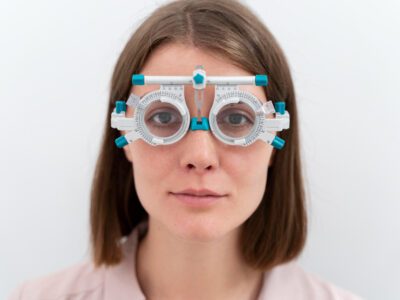Our eyes are vital organs that enable us to see the world around us. However, maintaining good eye health often goes overlooked until problems arise. The saying “you are what you eat” holds, especially regarding eye health. The right nutrients protect our eyes from various conditions and help maintain optimal vision. This article will explore the best foods for eye health, backed by scientific evidence, real-life examples, and current activities promoting eye health through nutrition.


The Importance of Eye Health
Before diving into specific foods, it is essential to understand why maintaining eye health is crucial. Eye diseases such as cataracts, age-related macular degeneration (AMD), glaucoma, and dry eyes are prevalent and can lead to vision impairment or loss. Proper nutrition can play a significant role in preventing these conditions and ensuring overall eye health.
Key Nutrients for Eye Health
Several nutrients are particularly beneficial for maintaining and improving eye health. These include:
- Vitamin A and Beta-Carotene: Essential for good vision, Vitamin A helps maintain the cornea, the eye’s outer covering. Beta-carotene, a precursor to Vitamin A, is found in colourful fruits and vegetables.
- Lutein and Zeaxanthin: These carotenoids are found in high concentrations in the macula, a part of the retina responsible for clear central vision. They act as antioxidants, protecting the eyes from harmful light and oxidative damage.
- Vitamin C: An antioxidant that helps reduce the risk of cataracts and AMD by combating free radicals.
- Vitamin E: Works in conjunction with Vitamin C to protect eye cells from damage.
- Omega-3 Fatty Acids: Important for retinal function and visual development, omega-3s can help prevent dry eyes and AMD.
- Zinc: Essential for transporting Vitamin A from the liver to the retina, where it is used to produce melanin, a protective pigment.
Top Foods for Eye Health
- Carrots
Carrots are perhaps the most well-known food for eye health due to their high beta-carotene content. Beta-carotene is converted into Vitamin A in the body, essential for good vision. Regular consumption of carrots can help prevent night blindness and dry eyes. Many older adults globally suffer from night blindness due to Vitamin A deficiency. Incorporating carrots into their diet has shown significant improvements in their vision.
- Leafy Green Vegetables
Spinach, kale, and other leafy greens are rich in lutein and zeaxanthin. These antioxidants absorb blue light, which can harm the retina, and they also help increase the density of macular pigment. Health organizations worldwide, like the American Academy of Ophthalmology, promote the benefits of leafy greens for eye health and provide resources on how to incorporate them into diets.
- Citrus Fruits
Oranges, lemons, and grapefruits are packed with Vitamin C, which helps protect the eyes from oxidative damage. Regular consumption can reduce the risk of cataracts and AMD. In many countries, public health campaigns emphasize the inclusion of citrus fruits in daily diets to improve overall health, including vision.


- Fish
Fatty fish like salmon, tuna, and sardines are rich in omega-3 fatty acids, which are crucial for retinal health and preventing dry eyes. Omega-3s also help combat AMD. The “Seafood Nutrition Partnership” in the United States educates the public about the benefits of consuming fatty fish for eye health.
- Eggs
Eggs contain lutein, zeaxanthin, Vitamin A, and zinc, making them a powerhouse for eye health. The combination of these nutrients helps protect against night blindness, dry eyes, and AMD. Dietitians worldwide recommend eggs as a versatile and nutritious food that can significantly contribute to maintaining eye health.
- Nuts and Seeds
Almonds, walnuts, flaxseeds, and chia seeds are excellent sources of Vitamin E and omega-3 fatty acids. These nutrients help reduce the risk of AMD and protect the eyes from free radical damage. Global health organizations, like the World Health Organization (WHO), promote the consumption of nuts and seeds as part of a balanced diet for overall health, including eye health.
- Sweet Potatoes
Sweet potatoes are rich in beta-carotene and Vitamin E. Regular consumption can help prevent night blindness and reduce the risk of AMD. Nutrition programs worldwide, including those supported by UNICEF, promote sweet potatoes as a valuable source of nutrients for children’s development and eye health.
- Bell Peppers
Bell peppers are loaded with Vitamin C, which is essential for maintaining the health of blood vessels in the eyes and reducing the risk of cataracts. Educational initiatives by health organizations encourage the inclusion of colourful vegetables like bell peppers in meals to enhance nutritional intake and support eye health.
- Blueberries
Blueberries are packed with antioxidants, particularly Vitamin C and Vitamin E. These antioxidants help protect the eyes from oxidative stress and reduce the risk of cataracts and glaucoma. Health and wellness programs globally, like those in the UK by the NHS, highlight the benefits of berries, including blueberries, for overall health and vision protection.
- Beans and Legumes
Beans, lentils, and chickpeas are rich in zinc, which helps maintain the health of the retina and lowers the risk of developing cataracts and AMD. Agricultural and nutritional programs in various countries promote the cultivation and consumption of legumes as part of a healthy diet to support eye health.
Practical Tips for Incorporating Eye-Healthy Foods
Incorporating these eye-healthy foods into your diet doesn’t have to be complicated. Here are some practical tips:
- Start Your Day Right: Begin your day with a smoothie packed with spinach, kale, carrots, and blueberries.
- Snack Smart: Keep a mix of nuts and seeds handy for a nutritious snack.
- Incorporate Fish: Aim to include fatty fish in your meals at least twice a week.
- Add Color: Make your meals vibrant with a variety of colourful vegetables and fruits.
- Cook with Eggs: Add eggs to your salads or make an omelette with leafy greens and bell peppers.


Conclusion
Maintaining good eye health is essential for a high quality of life, and nutrition plays a significant role in this. By incorporating these nutrient-rich foods into your diet, you can help protect your eyes from various conditions and ensure they stay healthy. Whether you are enjoying a hearty meal with fish, snacking on nuts, or adding leafy greens to your plate, remember that each bite is a step towards better vision.
Investing in your eye health today can prevent vision problems in the future. Start incorporating these foods into your diet and encourage others to do the same. Your eyes will thank you!





Comments